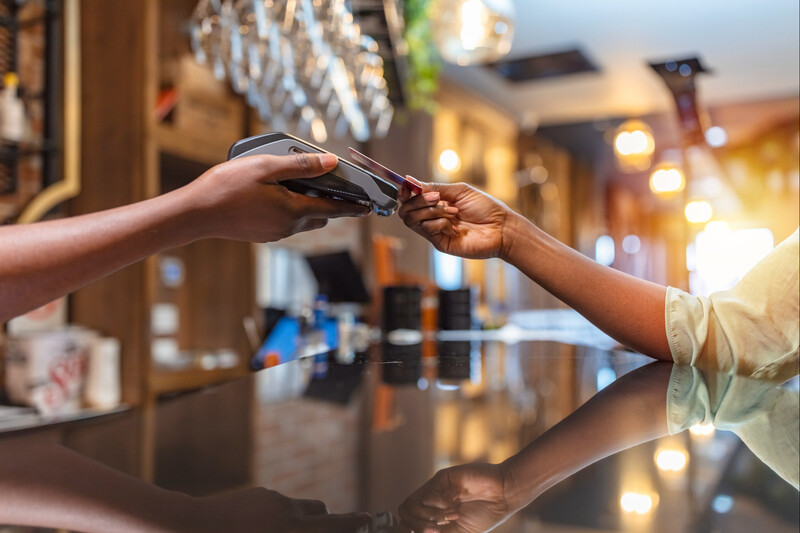Malgré la crise sanitaire, les revenus du secteur des paiements n’ont connu qu’une faible baisse entre 2019 et 2020. Leur croissance devrait se poursuivre : selon le dernier rapport Global Payments du Boston Consulting Group, les revenus globaux du secteur pourraient doubler et ainsi vite passer de 1 500 milliards de dollars aujourd’hui, à 2 900 milliards en 2030.
Paiements : un secteur peu impacté par la crise sanitaire
La pandémie de Covid-19 a eu un impact très modéré sur les revenus du secteur des paiements, avec une baisse de 2,5 % entre 2019 et 2020. Très rapidement, le secteur a pu faire face à la crise, ce qui laisse envisager une croissance conséquente dans les années à venir.
D’après le dernier rapport annuel Global Payments du Boston Consulting Group, cette croissance devrait être de 7,3 % dans les 5 prochaines années. Elle atteindrait ensuite, entre 2025 et 2030, un taux de 6,4 %, ce qui amènerait à un doublement des revenus du secteur des paiements : actuellement de 1 500 milliards de dollars, ils pourraient atteindre, d’ici 2030, 2 900 milliards de dollars.
« Le secteur des paiements a démontré sa capacité de transformation, d’adaptation et de soutien aux particuliers et aux entreprises depuis le début de la crise. La résilience des acteurs du paiement a contribué au rebond de l’économie mondiale », a déclaré Yann Sénant, responsable mondial des activités paiements et directeur associé au Boston Consulting Group, dans un récent communiqué de presse.
Selon lui, « les acteurs traditionnels vont être contraints de repenser leur positionnement, leurs offres et leurs modes de fonctionnement », en raison des nombreuses innovations portées par de nouveaux acteurs.
Banques et fintechs : des partenariats indispensables pour les paiements
Actuellement, le secteur des paiements est dominé par l’Asie et plus particulièrement la Chine, où les transactions mobiles, notamment grâce à des acteurs comme WeChat et AliPay, ont connu un essor considérable : en 2016, elles représentaient 7 000 milliards de dollars, contre 37 000 milliards de dollars en 2020. Une croissance qui n’a pas échappé aux investisseurs : l’Asie a obtenu 44 % des fonds mondiaux levés par les fintechs au 1er trimestre 2021.
Plusieurs acteurs américains et européens se démarquent, comme la fintech suédoise Klarna, la mieux valorisée d’Europe avec une valorisation à 45 milliards de dollars, soit un triplement en un an, ou encore les géants Square et Stripe, valorisés 115 milliards de dollars et 95 milliards de dollars.
D’après le rapport du Boston Consulting Group, les banques devraient s’inscrire dans une logique de collaboration avec les nouveaux acteurs du marché. Les auteurs du rapport prévoient « un engagement et réinvestissement fort des banques traditionnelles dans les activités de paiement », au moyen de partenariats visant à « combiner leur puissance de distribution et l’efficacité, la vitesse et les capacités technologiques de pointe d’acteurs fréquemment issus du monde de la tech ».
Une stratégie récemment adoptée par la Banque Postale, qui s’est alliée avec la fintech Alma au mois de mai pour déployer son offre de paiement fractionné. BNP Paribas a quant à elle décidé de privilégier le rachat au partenariat avec Floa Bank, ce qui est impossible avec les acteurs leaders du marché, au vu de leurs valorisations.
